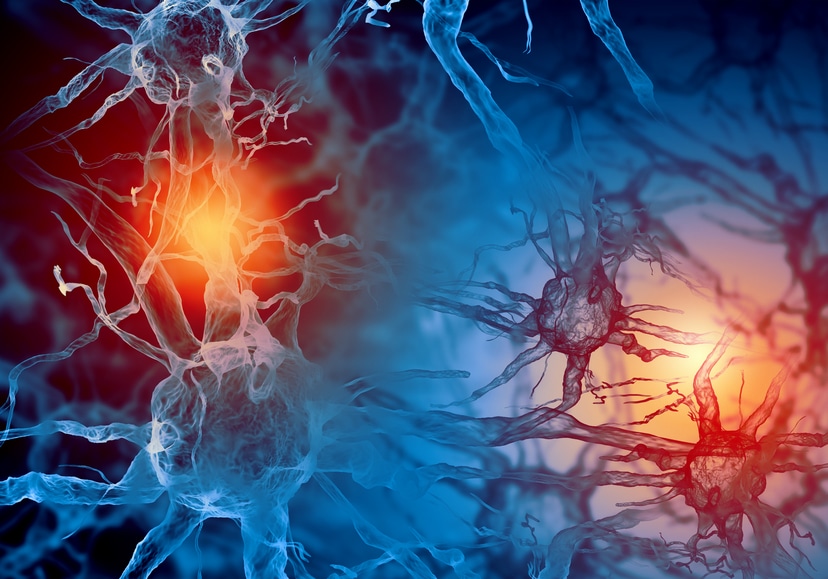Toxic chemicals are all around us. It’s impossible to avoid them. They are in virtually all household products that have plastic. They are in carpeting, furniture, and fabrics that are fire retardant. They are in most of our food. They are in much of our drinking water and in the air we breathe.
What do they do to us? There is a growing body of evidence that five common chemicals hurt our brains.1 They are linked to autism, lower IQs, attention deficit disorder, and dementia.
1. Flame retardants: Studies show exposure makes people less intelligent and more hyperactive. They can make men infertile.2 Most furniture, carpeting, and car interiors are full of flame retardant chemicals.
One of the worst places are airplanes. They use fire retardant foams throughout the cabin. In tests, air levels of the toxic fire retardant BDE 209 were found to be several times higher in planes than in offices and homes.
2. Phthalates: Children are particularly vulnerable to these plastics chemicals. They are linked to intellectual deficits. Phthalates are banned from toys and children’s drinking utensils. But they are still used widely in food packaging and building materials.
3. Organophospate pesticides: These chemicals are banned for residential use. But farmers are still allowed to put them on crops. Women who live near fields sprayed with these bug killers are three times more likely to have an autistic baby.3
Recommended for You: Does Your Fridge Hold This Alzheimer’s-Beating Secret?
In one study, 21 patients with Alzheimer’s drank this common fruit juice each day. After 30 days, their mood and behavior improved. They experienced less anxiety, depression, and delusion. The head researcher noted, “They had a better quality of life.” Another study on mice found the same thing.
And surprisingly, eating the whole fruit just isn’t as effective. Find out why HERE.
4. Lead: The recent crisis in Flint, Michigan, made big headlines. But the problem is much more widespread. More than 5,300 water systems in the United States violate lead safety standards, according to a recent report by the Environmental Protection Agency.4 Lead is a potent neurotoxin.
5. Combustion-related air pollution: This includes airborne toxins such as benzene, formaldehyde, and a group of chemicals known as polycyclic aromatic hydrocarbons (PAHs). They are linked to cancer, immune problems, reduced IQ, and developmental delays in children.5
Almost all Americans have these five chemicals circulating in their bodies. One study of pregnant women found that 99% had detectable levels of at least one of them.
While you can’t eliminate your exposure, there are ways to reduce your risk:
- Look at the tag: When you buy furniture and other items with fabrics, ask for products that are labeled free of toxic flame retardants.
- Get poison-free flooring: If you’re putting in a new floor, choose phthalate-free vinyl. Or go with a natural option such as wood, bamboo, or cork. If you go for carpets, choose natural fibers.
- Follow your nose: Choose scent-free personal care products to avoid phthalates in fragrances.
- Bust the dust: Use a HEPA-filtered vacuum cleaner.
- Go organic when buying six kinds of produce: It’s best for your health to eat organic whenever possible. But it’s particularly important when it comes to certain fruits and vegetables. There are six that expose you to high levels of pesticides when you eat non-organic versions. They are strawberries, apples, nectarines, green beans, celery, and spinach.
- Get fresh air: When the weather allows, open your windows to dilute chemical-laden indoor air. When you’re heating or using air conditioning, use an air purifier.
- Filter your water: The best filters combine reverse osmosis with carbon filtration.
There’s another way you can protect your brain… There’s a natural herb extract so effective at fighting Alzheimer’s that Big Pharma is trying to turn it into a drug. They want to keep it a secret.
But you can get the safe, natural version right now, without an expensive prescription. Get the details here.
In Good Health,

Angela Salerno
Executive Director, INH Health Watch
Like this Article? Forward this article here or Share on Facebook.
References:
1http://well.blogs.nytimes.com/2016/07/01/a-call-for-action-on-toxic-chemicals/?rref=collection%2Fsectioncollection%2Fhealth&action=click&contentCollection=health®ion=rank&module=package&version=highlights&contentPlacement=1&pgtype=sectionfront
2http://www.globalhealingcenter.com/natural-health/10-shocking-facts-flame-retardants/
3http://news.nationalgeographic.com/news/2013/07/130718-organophosphates-pesticides-indian-food-poisoning/
4http://www.cnn.com/2016/06/28/us/epa-lead-in-u-s-water-systems/
5http://www.toxipedia.org/display/toxipedia/Polycyclic+Aromatic+Hydrocarbons

